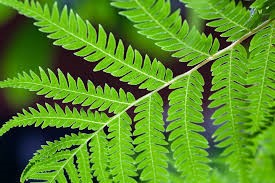Botany
Homework Help & Tutoring
We offer an array of different online Botany tutors, all of whom are advanced in their fields and highly qualified to instruct you.
Botany

Courtesy of Pixabay
The area of botany can best be defined as “the scientific study of plants, including their physiology, structure, genetics, ecology, distribution, classification, and economic importance”. Therefore, a botanist would be a person whose entire career is devoted to learning more about plants, how they reproduce, how to cross-breed them, and how to efficiently make use of them in our daily lives.
There are basically three topics covered by botany:
Core topics are fundamental natural phenomena and processes of plant life. They involve divisions of botany such as cytology, epigenetics, plant genetics, and plant taxonomy, to name a few.
Applied topics are used to study the ways in which plants can be used for economic benefit in agriculture and forestry. Some examples of applied topics are biotechnology, dendrology, forestry, and horticulture.
Organismal topics contain a focus on plant groups such as algae, mosses, or flowering plants. These would include mycology, phycology (study of algae), and bryology (study of mosses and liverworts).
Students can receive a bachelor's or master’s degree in the area of botany from many colleges and universities across the world. Depending on the school, there are required courses for general degrees - students will also elect courses based on their interests.
Some of the courses offered for a botany degree are:
- Plant diversity
- Principles of biology
- Chemistry
- Organic chemistry
- Physics
- Genetics
- Evolution
- Plant taxonomy
- Plant ecology
- Local flora
- Climate change biology
- Fungal biology
- Environment, food, and society
- Plant chromosomes and genomes
- Plant breeding
Students who wish to pursue botany as a career choice have an unlimited potential for application of the skills learned in school. With recent advances in the field, such as plant hybridization and genetic manipulation, there are essentially opportunities to grow new species of flora that could withstand dramatic changes in our environmental landscape. Watch this TED video for information about how one division of botany is attempting to store plant seeds now so they may be utilized later.
Online Botany Tutoring with 24HourAnswers
If you're looking for a botany tutor, 24HourAnswers has qualified tutors available to help with your assignments. Browse our tutors or fill out a form to get started!
To fulfill our tutoring mission of online education, our college homework help and online tutoring centers are standing by 24/7, ready to assist college students who need homework help with all aspects of botany. Our biology tutors can help with all your projects, large or small, and we challenge you to find better botany tutoring anywhere.
College Botany Homework Help
Since we have tutors in all Botany related topics, we can provide a range of different services. Our online Botany tutors will:
- Provide specific insight for homework assignments.
- Review broad conceptual ideas and chapters.
- Simplify complex topics into digestible pieces of information.
- Answer any Botany related questions.
- Tailor instruction to fit your style of learning.
With these capabilities, our college Botany tutors will give you the tools you need to gain a comprehensive knowledge of Botany you can use in future courses.
24HourAnswers Online Botany Tutors
Our tutors are just as dedicated to your success in class as you are, so they are available around the clock to assist you with questions, homework, exam preparation and any Botany related assignments you need extra help completing.
In addition to gaining access to highly qualified tutors, you'll also strengthen your confidence level in the classroom when you work with us. This newfound confidence will allow you to apply your Botany knowledge in future courses and keep your education progressing smoothly.
Because our college Botany tutors are fully remote, seeking their help is easy. Rather than spend valuable time trying to find a local Botany tutor you can trust, just call on our tutors whenever you need them without any conflicting schedules getting in the way.






